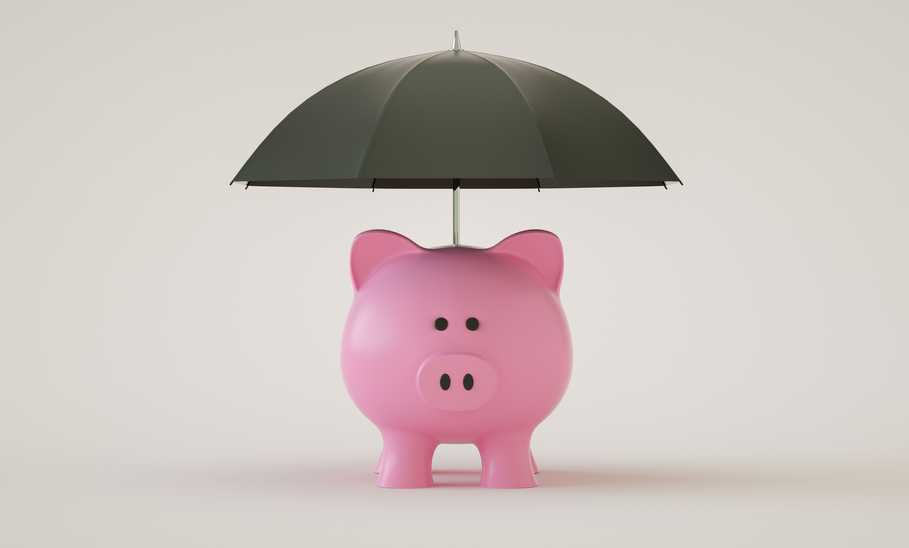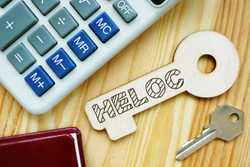A secured loan is a type of loan that is backed by collateral, something valuable that improves your standing with a lender. Home mortgages and auto loans are two common types of these kinds of loans—the collateral being your home or car. Assets of any type can qualify as collateral, and if you default on your secured loan, the lender can seize them.
Experian says these types of assets can be used for a secured loan:
- Real estate. (Home, rental property, land, etc.)
- Bank accounts. (Checking and savings accounts, certificates of deposit (CDs), and money market accounts)
- Vehicles. (Cars, trucks, SUVs, motorcycles, boats. etc.)
- Investments. (Stocks, mutual funds, bonds, etc.)
- Insurance policies. (Life, auto, travel, property, etc.)
- Valuables. (Precious metals, high-end collectibles, jewelry, art, antiques, etc.)
Who should apply for a secured loan?
In some cases, such as home and vehicle loans, secured loans come with the territory. Unless you can afford to pay in full in cash, you need a loan to buy a house or car. The property you are purchasing then serves as the collateral.
In other cases, such as a credit card or personal loan, a lack of credit history or bad credit score may prevent you from qualifying for an unsecured loan. However, if you have collateral to offer, you may be able to get a secured loan.
How do secured loans work?
As stated above, secured loans are backed by an asset or assets you put up as collateral. Once you pay back the loan, your collateral is no longer in danger of appropriation by the lender and becomes totally yours again.
If you go into arrears on your loan, the lender will place a lien on your collateral until the loan is repaid in full. If you default on the loan, the lender can claim the collateral and sell it to recoup the loss.
Secured loans: Pros and cons
As with any loan, there are positive and negative aspects to consider before deciding whether to take the loan.
Pros:
- You may get a higher borrowing limit. When you have collateral to secure a loan, you could be granted more funds by your lender.
- Your borrowing terms could be more favorable. Depending on the terms of your loan and your lender, you could snag a lower interest rate or a longer repayment arrangement and have fewer restrictions on how you can use your funds.
- You may have tax advantages. Some secured loans offer tax deductions for the interest you pay on them, such as home mortgages. Speak with your certified public accountant (CPA) or tax advisor to check on the benefits for interest paid on specific secured loans.
Cons:
- You can lose your property. Secured loans present a risk of surrendering your collateral if you default on your loan payments. Read your loan documents thoroughly and completely to understand what you could lose if you default.
- You can damage your credit. If you default on a secured loan, it can stay on your credit report for seven years and lead to a lower credit score and less access to credit.
- You may face legal action. If you default, you risk debt collection and being sued for damages.
Considerations about secured loans
As with any type of loan, it’s important to understand all the factors that will impact your loan choice.
Consider these matters:
- Collateral. Which assets do you have that have enough value to secure a loan?Can you afford to lose them if you default? Also, can you afford the other possible consequences of default, including damage to your credit, debt collection, and lawsuits?
- Limits. What are the minimum or maximum caps on loan amount, monthly payments, length of repayment schedule, interest rate, and more?
- Interest rate. How toxic is the annual percentage rate (APR) you will have to pay? Is it fixed or variable?.
- Fees. Application fee, origination fee, maintenance fee, late-payment fee, closing costs, and more may apply.
- Prepayment penalty. Is there a penalty if you want to pay the loan back early?
How do secured loans affect your credit?
Applying for a secured loan can increase your approval chances. If you are trying to create a favorable credit history or rebuild your credit after past challenges, opening a secured loan can help. Of course, if you default on the loan, it will affect your credit adversely.
Types of secured loans
- Mortgage. When you take out a mortgage, your home is the collateral. If you default, your home could go into foreclosure.
- Vehicle loan. A secured loan to buy a car or other vehicle means that it will be used as collateral. If you don’t make the payments according to your loan agreement, your vehicle could be repossessed.
- Home equity loan or a HELOC. These provide you with access to the equity in your home as either a lump sum or a line of credit, with your home as the collateral. As with a mortgage, if you don’t pay it back, you could lose your home.
- Personal secured loan. A personal loan generally allows you to borrow money that you can use without restriction, and you can use a variety of different asset types to secure one. Again, though, if you don’t repay it, the lender could seize the assets that guaranteed the loan.
How to apply for a secured loan
Each lender has its own customized process, but here are common requirements when you apply for a secured loan.
- Check your credit score. Your credit score affects your loan approval chances and will impact your interest rate, the amount you can borrow, and how lenders will review your loan application.
- Determine the value of the collateral. That worth will determine how much you can borrow. Conduct an appraisal and be sure you have paperwork to support the stated amount. Also, it’s worthwhile to find which types of collateral your potential lender may require.
- Shop around for lenders. By comparing lenders, you’re in a better position to get the best interest rate, amount, term, and conditions. Don’t forget to factor in any applicable fees.
Where to get a secured loan
You can apply for a secured loan through a traditional bank, a credit union, or an online lender. If you prefer the old-school approach of working with a lender in person, a traditional brick-and-mortar bank or credit union may be a better match.
Secured vs. unsecured loans
The main difference is that secured loans require collateral and unsecured loans don’t. Another difference is that an unsecured loan may have more restrictions on how it can be used than a secured one. Secured loans also generally have more favorable overall terms than unsecured ones.
Alternatives to secured loans
If you don’t want to risk losing your collateral on a secured loan, consider these alternatives.
Credit card
If your credit line can cover your debt, credit cards may be an option. However, it’s important to understand your credit terms, such as interest rates and fees regarding late or missed payments. If you don’t pay your balance off in full every month, you could soon rack up high interest charges that you may not be able to afford.
Also, your credit card may offer you the ability to borrow funds as a cash advance, but this option usually has a high interest rate, even higher than the rate you pay on your monthly card balance.
401(k) loan
If you have a 401(k) plan through your employer, you may be able to borrow money against this retirement account. Be sure to understand the rules before you do so. You could end up depleting your retirement account if you can’t pay back the loan. And if you leave your job before your loan is paid off, you may end up being forced to take it as a taxable distribution and incur penalties if you are younger than 59½.
Your 401(k) plan may allow you to receive a hardship distribution because of an immediate and severe financial need per the Internal Revenue Service (IRS). This is less onerous than taking out a loan, so check it out first. But know that you are sacrificing the chance to keep those funds in tax-advantaged savings for your retirement.
Family or friends
You can ask relatives or friends if they are in a position to lend you the money. If they are, put the terms of the loan in writing, including the interest rate, payback terms, and other information—and make sure you stick to them. Financial betrayal is guaranteed to fray personal relationships.
TIME Stamp: A secured loan can provide significant cash, but beware of the consequences of default
A secured loan is backed by collateral, which could be your car, home, or lifetime savings, and it can be seized by your lender if you don’t make your loan payments in full and on time. Should you have unstable employment or unpredictable income, a secured loan can be risky. If you do not meet your loan payments, you could pay a punishing price.
Frequently asked questions (FAQs)
What can be used as collateral for a secured loan?
Collateral can include your car, home, savings, investment accounts, insurance policies, and valuables (jewelry, antiques, high-end collectibles, art, precious metals, etc.).
Can you pay off a secured loan early?
Yes, you can, and you would think that paying off a loan early would save you money due to the interest payments you won’t have to make. However, before you do so, look into whether your lender charges prepayment penalties. The amount might exceed what you save in interest payments. There might also be tax issues or other fees that make paying off a loan early not worth it.
What happens if you default on a secured loan?
When you don’t pay back a secured loan, the lender can claim the collateral you pledged to back it. You could also be subject to debt collection and lawsuits. Be sure to read your loan documents carefully so you understand the risks.
How do I avoid defaulting on a secured loan?
Don’t take out a secured loan until you first review your budget and make sure your income can cover your monthly payment. If your budget is tight, look for ways to cut expenses. Also, consider getting a second job or starting a side hustle to increase your revenues.





